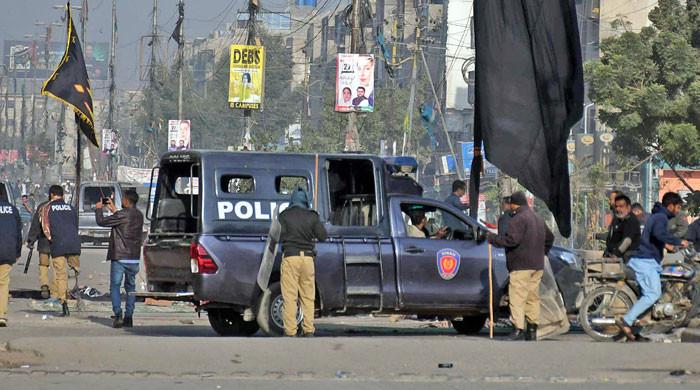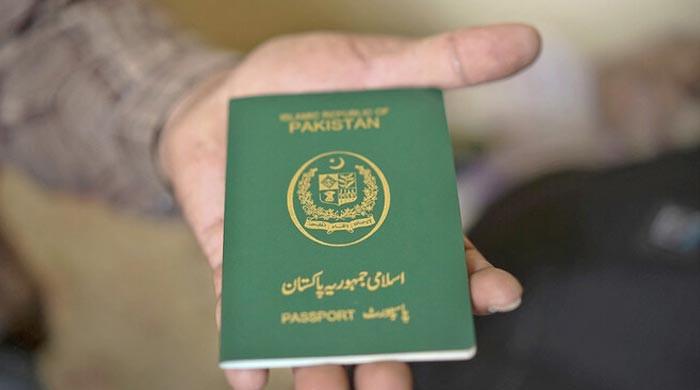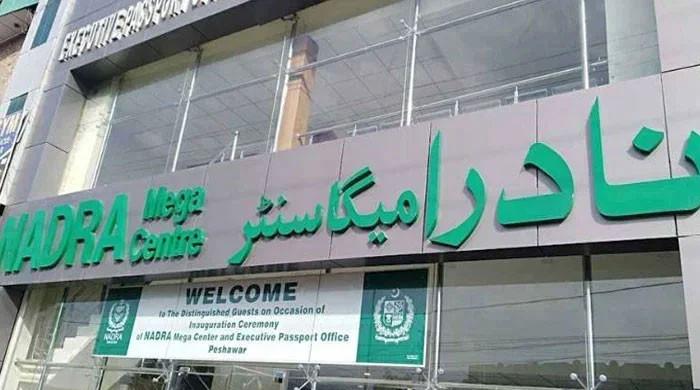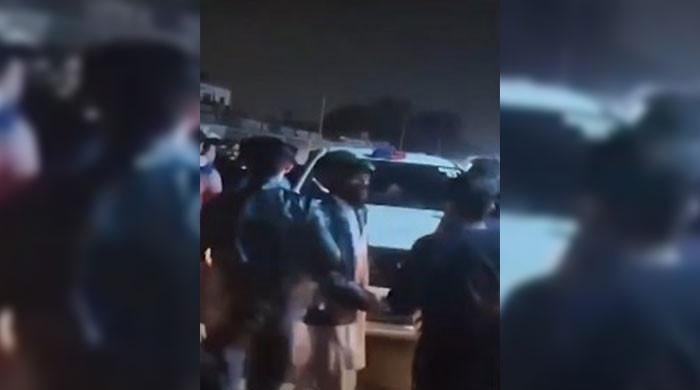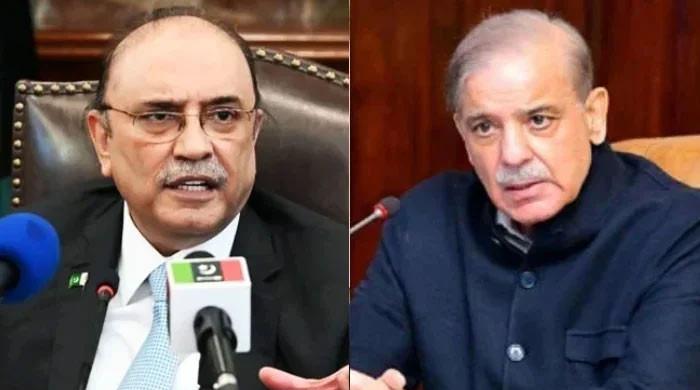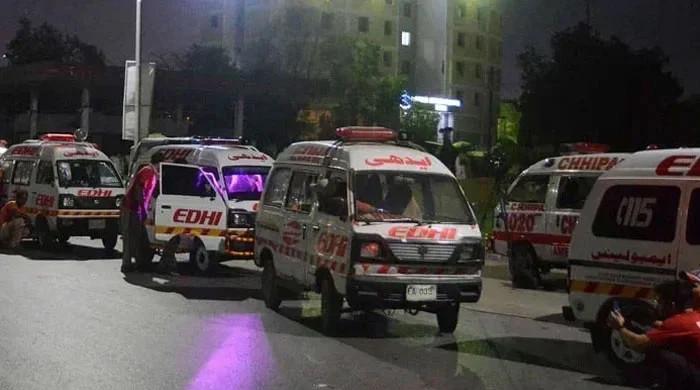Civilians' military trial: SC verdict on plea for formation of full court tomorrow
SC reserves verdict on Karamat Ali's new plea after all parties in case oppose request for full court
August 01, 2023
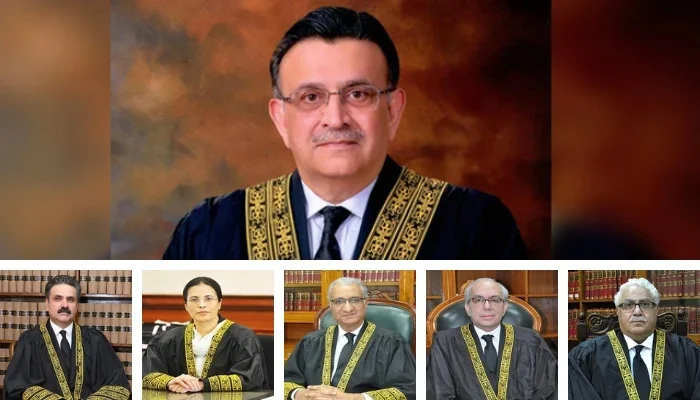
- AGP presents list of 102 suspects in military's custody.
- CJP says independent body should review if arrests' basis.
- CJP's associate informs parties that verdict will be announced tomorrow.
ISLAMABAD: The Supreme Court will announce the verdict on a fresh plea seeking the constitution of a full court on the matter of military trials of civilians arrested for involvement in May 9 violent protests, tomorrow (August 2).
A six-member bench, headed by Chief Justice of Pakistan (CJP) Umar Ata Bandial, and comprising Justice Ijazul Ahsan, Justice Munib Akhtar, Justice Yahya Afridi, Justice Sayyed Mazahar Ali Akbar Naqvi, and Justice Ayesha Malik, reserved the verdict while hearing the identical petitions challenging the government's decision to conduct trials of civilians in military courts.
"[Court] will hold consultations on this matter now. [We] will inform about the opinion in 15 minutes if the consultations are completed," CJP Bandial said.
He added that the decision will be announced tomorrow if the consultations do not conclude.
Later, the CJP's associate informed the parties that the verdict will be announced tomorrow.
On Monday, the apex court was requested to constitute a full court for the ongoing hearing on the petitions, with the submission that only a judgment of the full court can counter any future contemptuous attempt to sabotage any judgment passed in this present petition as well as the connected petitions.
“The full court should include all judges willing and available for the adjudication on the fundamental and complex constitutional and legal questions,” Karamat Ali argued in the fresh application filed under Order 33 Rule 6 of the Supreme Court Rules 1980 via his lawyer Faisal Siddiqui.
The hearing
When the hearing resumed today, Attorney General of Pakistan (AGP) Mansoor Usman Awan presented a list comprising the names of 102 suspects in the military's custody before the court, after arguments of former chief justice Jawwad S Khawaja's lawyer.
The AGP said the arrests had been made on the basis of evidence and CCTV camera records, and seven of the arrested suspects are directly involved in the attack on the General Headquarters.
Justice Naqvi remarked that "pick and choose" is not allowed in the law, asking why suspects other than these 102 suspects had been released.
At this, the AGP said that "pick and choose" hadn't been done in the arrests.
The CJP said that there should be an independent body to review if the arrests were made on the basis of solid evidence or not.
He then directed the AGP to seek directives from the government before presenting arguments on his appeals.
It may be noted that the SC on the last hearing gave AGP Awan a month's time to seek directives from the government on the matter of granting the right of appeal to people to be tried in military courts.
Starting his arguments on the fresh plea, Karamat Ali's lawyer cited Mustafa Khar's case as the oldest case of military trials. He claimed that the apex court has conventionally heard cases related to military trials under a full bench.
He asserted that his plea clearly stated that "the case will not be affected by the constitution of a full court bench at this point".
The CJP directed all the petitioners to give their stance on the request of a full court.
At this, only the lawyers of Zaman Khan Wardag and Karamat Ali favoured the request while lawyers of Pakistan Tehreek-e-Insaf Chairman Imran Khan and the Supreme Court Bar Association opposed it.
Later, the court reserved the verdict on this plea, which will be announced tomorrow.
The initial petitions
Following the arrests made in connection with the violent riots that erupted across the country on May 9, the government announced its decision to hold military court trials of those found guilty of damaging and attacking military installments — a move both the government and the army considered a low blow.
In light of this decision, PTI Chairman Imran Khan, Khawaja, legal expert Aitzaz Ahsan, and five civil society members, including Piler Executive Director Karamat Ali, requested the apex court to declare the military trials "unconstitutional".
In this petition filed through his lawyer, the former CJP pleaded that Section 2(1)(d)(i) and (ii) of the Pakistan Army Act were inconsistent with the fundamental rights granted by the Constitution and should be struck down.
Moreover, five members of civil society from different cities — represented by Faisal Siddiqi — appealed to the apex court to declare illegal the trial of civilians in the military courts.
Similarly, Ahsan's petition challenged the government's decision to try civilians in military courts.





